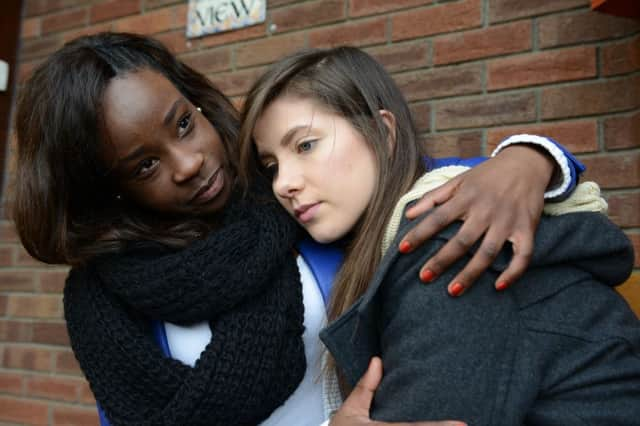Much more to do on attitudes to mental illness


Dignity is the theme of this year’s World Mental Health Day on Saturday. The theme was chosen by the World Health Organisation (WHO) to highlight the need to address major inequalities in countries where “people are deprived of their human rights, discriminated against, stigmatised and marginalised; subject to mental and physical abuse and poor quality care”. It is a call to action to take a rights-based approach to policy and law, to improve care and increase participation of those who need support.
In Scotland we, like many others, are getting involved to raise our voice in support of this grand ambition, and to promote the rights of people who are affected by poor mental health and mental illness to have the dignity of living lives that are valued, respected and equal.
Advertisement
Hide AdAdvertisement
Hide AdOur campaign focuses on raising awareness of the stigma experienced by people living with more serious mental illness, and Support in Mind Scotland has chosen the title “1 IN 100” to reflect the one person in 100 who will experience psychosis at some point in their lives.
But what message are we communicating and to whom? My concern is that we find it too easy to churn out platitudes about rights without understanding why this matters. We need to understand the scale of the shift needed to truly afford dignity to some of the most marginalised people in our communities.
The 1990 Community Care Act heralded the first fundamental shift in approach, emptying our long-stay hospitals to give people more personalised care in the community. We have since then broadly enlightened mental health legislation based on key principles that should safeguard rights and promote equality. Why then are people with mental illness still dying up to 20 years younger than their peers, not due to mental ill-health but due to undiagnosed or untreated physical conditions? Why are there still headlines about people driven to suicide through poverty caused by benefits cuts? Why are 92 per cent of people with serious mental illness likely to experience long-term unemployment with all the disadvantages and inequality that brings?
And it is not just the individuals with mental illnesses who are disadvantaged: 94 per cent of carers in our recent Scottish Schizophrenia Survey said that the stress of caring had had a negative impact on their own mental health.
It is in this context that we consider the meaning of dignity. In 2013, the Scottish National Action Plan for Human Rights was launched, with the ambitious vision that “Scotland is a country where everyone is able to live with human dignity”. Taking a rights-based approach to tackling injustice and exclusion is now embedded in our national policy – embedding it in our national psyche is the huge step we have yet to take.
Challenging stigma has been a national issue since the launch of Scotland’s national anti-stigma campaign, See me, in 2002. A key aim of this campaign is for people experiencing mental ill health to be treated as equals in our society – and there is progress: it is now more acceptable to talk openly about experiencing depression and anxiety.
But the more acceptable it is to talk about more common, “understandable”mental health problems, the more marginalised those with more serious mental illness can feel. This is where 1 IN 100 comes in. We know that many people who live with serious conditions can and do live full, active and happy lives – if they receive the right support at the right time.
But there is a small and very vulnerable group of people who do not, and we will never achieve dignity for all while those who live in crisis, who struggle because of illness and traumatic life experience to manage ordinary day-to-day routines, languish at the bottom of our priority lists for help as they are “hard to engage”.
Advertisement
Hide AdAdvertisement
Hide AdThe next shift in approach has to be to understand that in a compassionate and caring society, the obligation to engage is ours – not theirs.
• Frances Simpson is chief executive of Support in Mind Scotland